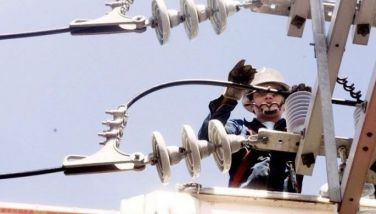Telcos gear up for entry of Starlink, seek government support
MANILA, Philippines — Local telcos are gearing up for US billionaire Elon Musk’s satellite firm’s entry into the Philippines, but still want government to provide them with subsidies to fully compete.
Officials of PLDT Inc., Globe Telecom, Dito Telecommunity Corp. and Converge ICT Solutions Inc. told The STAR they would require state financing in adapting the use of low earth orbit (LEO) satellites – each costing at least P400 million to deploy – similar to how Washington subsidizes broadband providers.
Globe said it has no plans yet of including LEO units to its portfolio given the cost needed to deploy even just one.
Globe president and CEO Ernest Cu said operating an LEO satellite costs too much that the US government rejected SpaceX’s latest request for subsidies. In spite of this, he said Globe would assess the viability of the technology, especially as it can service the remotest of areas.
“We are exploring, but the pricing is still too high for that kind of technology. If we just take a look at recent releases in the US, Starlink lost its subsidies because it was not viable for the US to cover it,” Cu told The STAR.
The US Federal Communications Commission recently turned down the application of Starlink, operated by Musk’s SpaceX, for $885.5 million in subsidies for internet service.
Starlink, which uses a constellation of LEO satellites to beam internet to the surface, had sought funding to extend 100/20 Mbps service to at least 642,925 locations across 35 states.
However, the US government declined the request for two reasons: first, Starlink’s upload speed has fallen below the promised 20 Mbps and second, it costs $600 for a consumer to own a dish.
The costly budget that needs to be allocated hinders the local telcos and internet providers from jumping on the LEO bandwagon. According to Converge CEO and co-founder Dennis Anthony Uy, it demands as much as P400 million to deploy just one LEO satellite to space.
As such, Uy said the Marcos administration’s push for universal connectivity should be coupled with investments in digital infrastructure, including LEO units. By doing this, the government will lower the cost of internet service for Filipinos, as broadband providers will shell out less for their service expenses.
“In countries like the US, Australia and Singapore, the common infrastructure is spent on by the government. That’s part of not duplicating the high cost of investment [and the governments just allow] the operators to ride on them. End of the day, if the operator is doing low investment, it is benefiting the consumer because the return of investments is faster,” Uy said.
He also pointed out that the government would be the first to benefit from the use of LEO satellites, as these units can be maximized for disaster response and military operations.
PLDT vice president and head of network design studio Arvin Siena agreed, saying the government plays a crucial role in providing internet access in far-flung areas.
“Government funding and support are always helpful in accelerating the adaption of significant technologies like LEO connectivity. PLDT and [its wireless unit] Smart are always in support of the government’s call to connect the unconnected in geographically isolated and disadvantaged areas,” Siena said.
PLDT and Ottawa-based Telesat tested last February the first LEO satellite in the Philippines that showcased a download speed of 100.46 Mbps and upload speed of 95.62 Mbps. As a next step, Siena said PLDT would study the cost of delivering LEO-based connectivity.
Given the price tag of deploying space units, Dito chief technology officer Rodolfo Santiago said the government can instead subsidize the land operations of telco players to free up capital that can be allocated for LEO adaption.
“What the government can do is to subsidize the cost of operating the land component by telcos by allowing telcos to charge these expenses from their payment of government fees,” Santiago said.
Starlink is scheduled to offer its internet from space broadband in the Philippines by December, selling the dish for $599 per unit and the service for $99 a month.
- Latest
- Trending






























